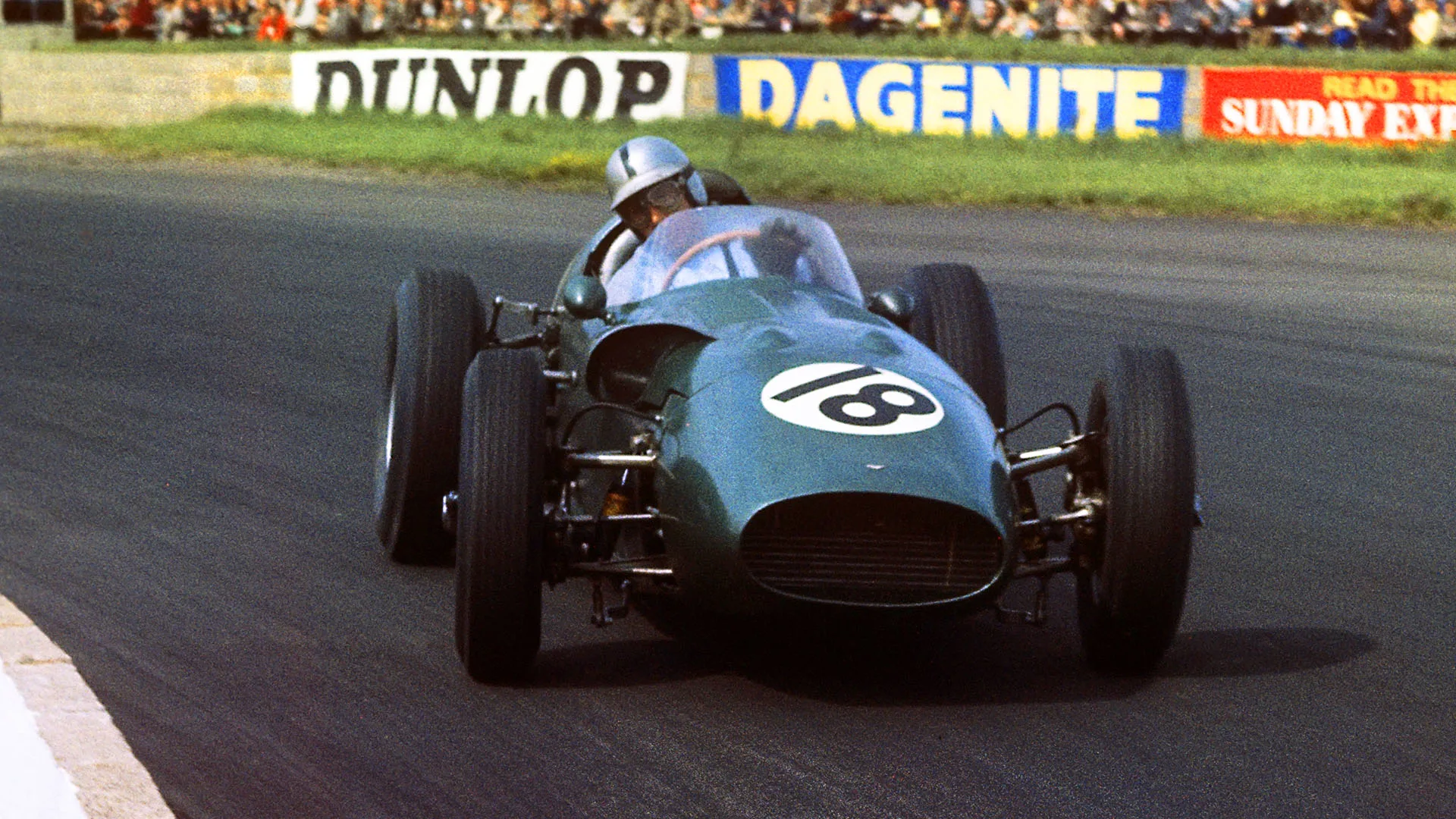
Perhaps the most hotly anticipated new livery for the 2021 season is that of the`new Aston Martin, with the Racing Point team being rebranded as the British manufacturer's works squad this year.
And based on the team's new sponsor's branding - plus a couple of teased images of drivers Sebastian Vettel and Lance Stroll in their new race suits - it looks like the cars will be sporting Aston Martin's traditional green colour scheme.
Green has adorned a number of F1 cars, both British and non-British, since the World Championship began 70 years ago. The use of British Racing Green dates back to the 1903 Gordon Bennett Cup race, where competitors were asked to paint their cars in colours nominated for their countries (yellow for Belgium, red for Italy, blue for France and so on).
With the race organised by the Automobile Club of Great Britain and Ireland, but hosted in Ireland due to a ban on public road racing in Britain, the club chose Shamrock Green as the colour for the British entrants as a gesture to their hosts – which subsequently became adopted as British Racing Green.
READ MORE: What can we expect from Aston Martin’s real F1 return?
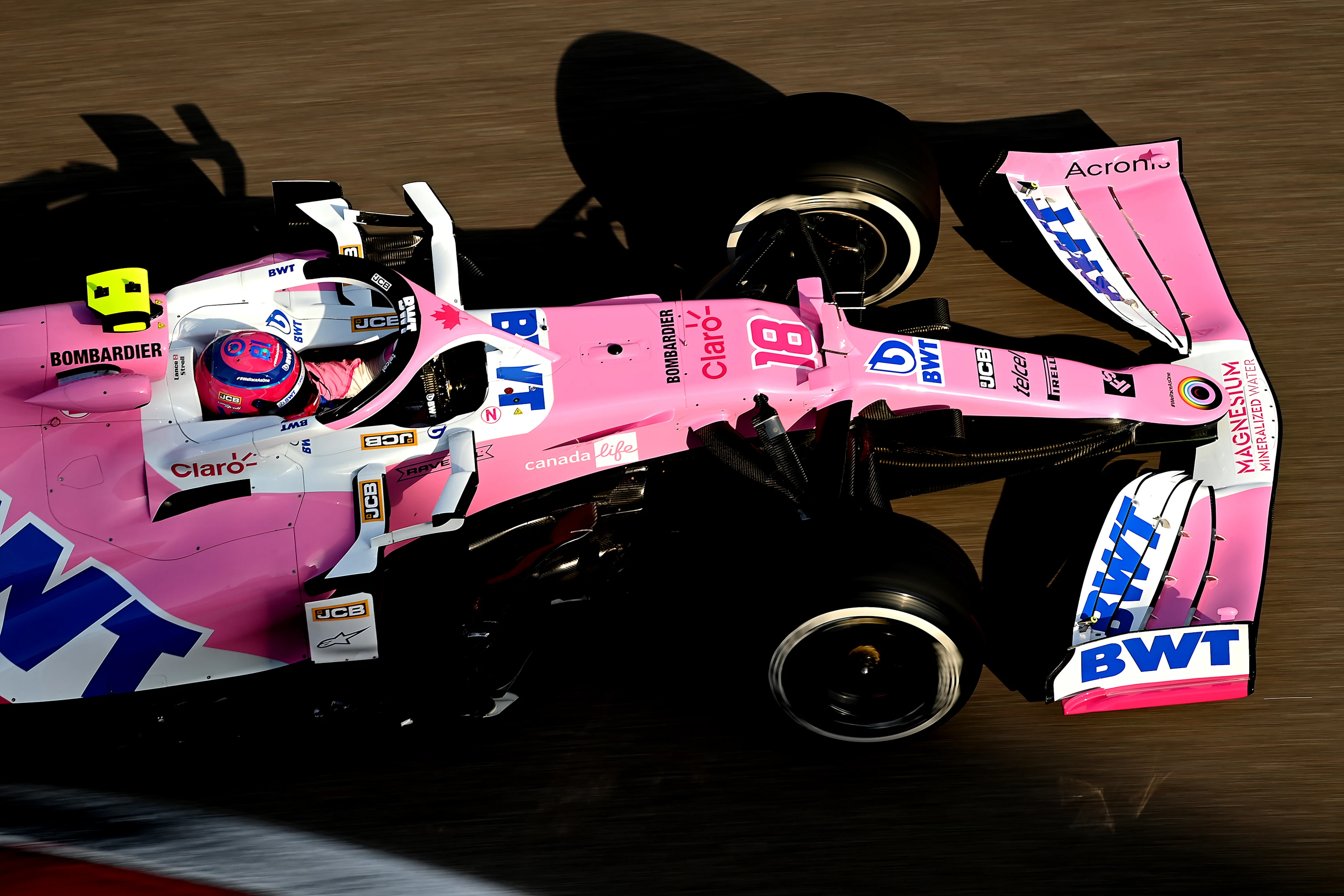
So with Aston Martin set to bring British Racing Green back onto the grid for 2021, here are eight of the coolest green cars to have competed in F1 since 1950.
1. Aston Martin DBR4
Next year’s ‘Aston Martin’ won’t be the first time a works Aston Martin has competed in Formula 1. The British manufacturer were a dominant force in sportscar racing in the late 1950s, and figured that they could carry that dominance through to Formula 1.
Alas, across the six Grands Prix the team entered in 1959 and 1960, the DBR4 and DBR5’s incredible beauty failed to be matched by its on-track performance, with Aston Martin scoring zero points in their time as an F1 constructor before bowing out. Pretty though, isn’t it?
READ MORE: Aston Martin F1 team ‘will need to be competitive from the outset’ says Stroll
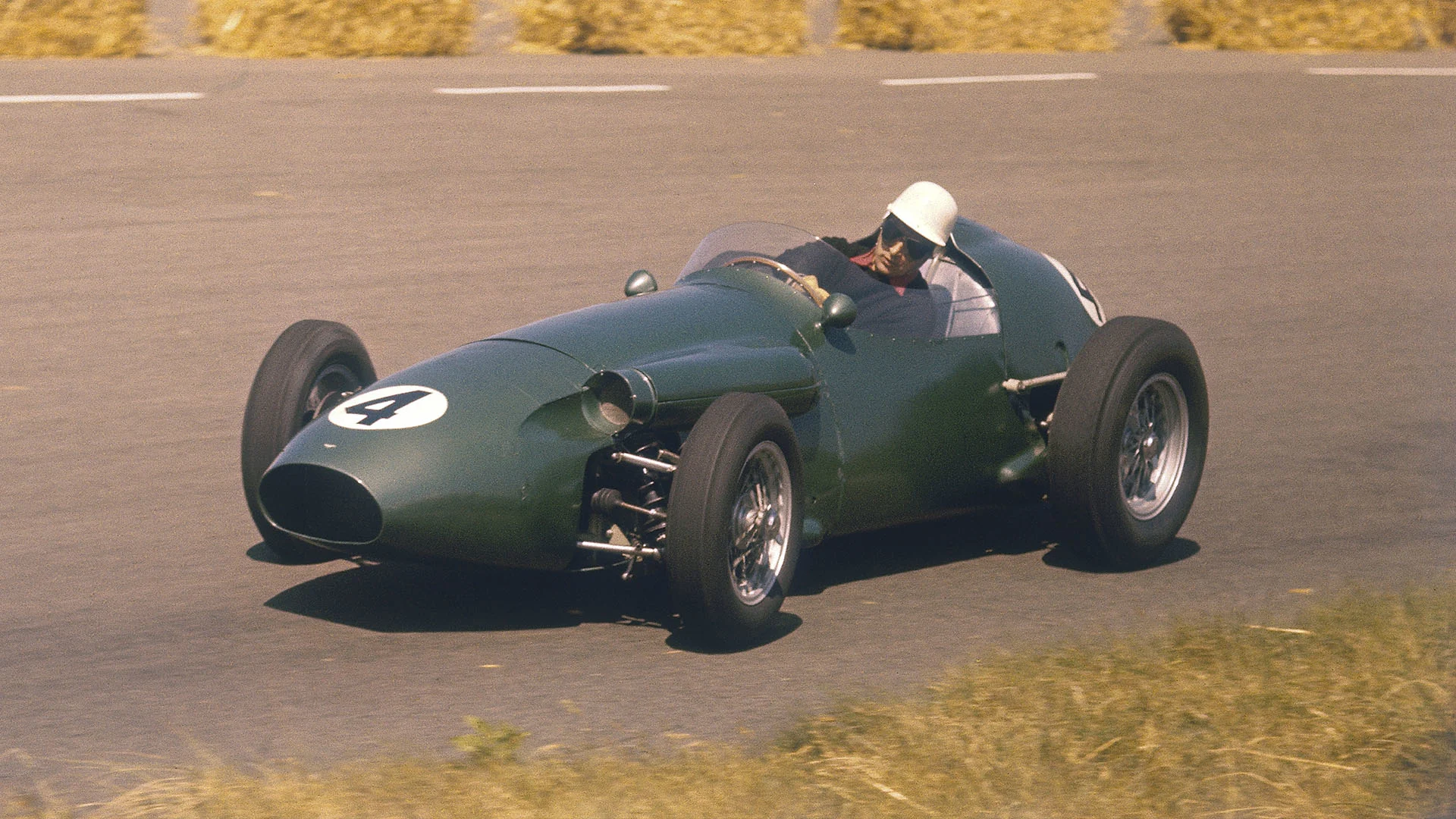
2. Jordan 191
F1 people love to tie themselves into knots over the beauty of the Jordan 191… and we’re not about to buck that trend. Look at it! Did you ever see a more sculptural, more alluring Formula 1 car? Magnificent.
Much like the origin of British Racing Green itself, Eddie Jordan opted for a shock of green for his first ever F1 car in deference to his native Ireland – while, dealmaker par excellence that he was, Jordan then proceeded to sell ad space on the car to companies with coordinating green logos, including 7UP and Fujifilm. Clever.
The car also gets bonus points for having been Michael Schumacher’s first ever F1 whip, when Schumacher was signed up for one race at the 1991 Belgian Grand Prix.
READ MORE: 8 amazing facts about Schumacher’s legendary F1 debut
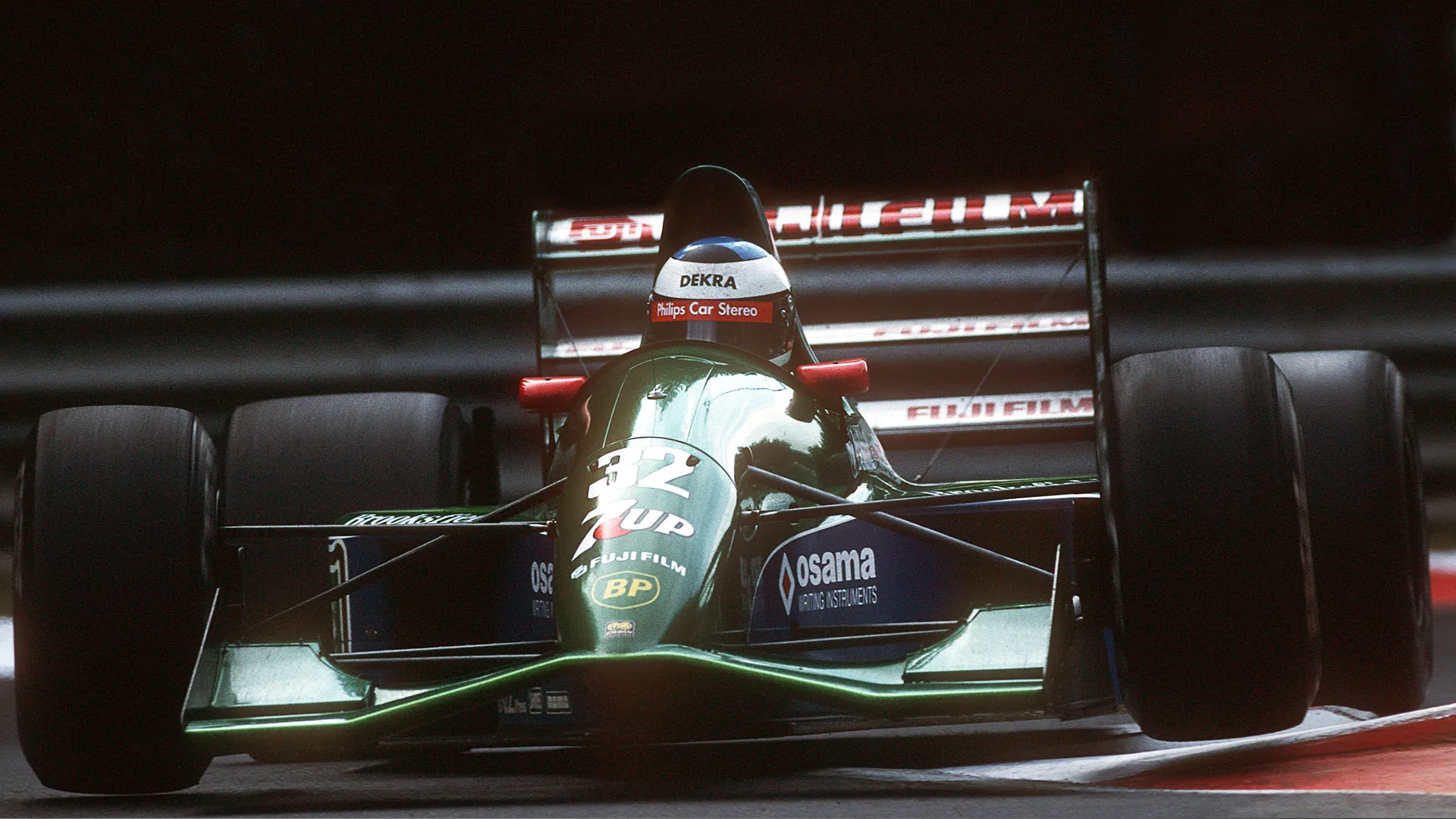
3. Vanwall
No matter how advanced Formula 1 cars get, there are some who will always yearn for the days when they looked like cigar tubes and wore handsome block colours. The Vanwall, perhaps along with the Maserati 250F, is arguably the archetype of the breed. Introduced in 1955, the car built by British industrialist Tony Vandervell was one of the most successful of the 1950s, taking nine wins across 1957 and 1958 in the hands of Stirling Moss and Tony Brooks – including the 1957 British Grand Prix at Aintree, where those two shared the victory.
Brooks’ 1958 Nurburgring win in the Vanwall, meanwhile, is one of F1’s great unsung victories, clouded as it was by the death of Peter Collins – while tragedy hung over the car’s final appearance in Morocco that year too, a race won by Moss but blackened by the death of Stuart Lewis-Evans in the sister Vanwall.
LISTEN: Fifties hero Tony Brooks on racing Fangio and Moss in F1's first decade
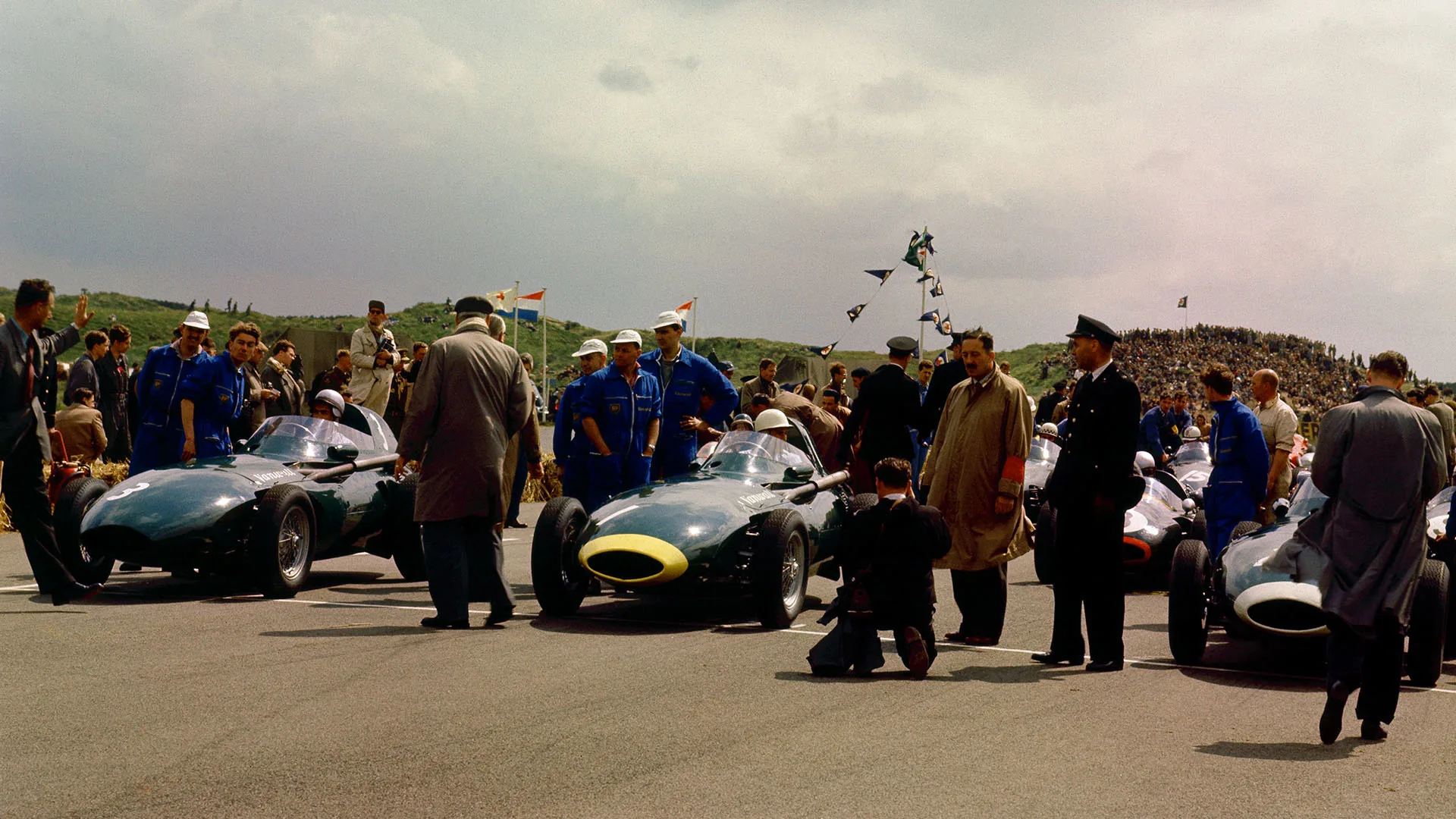
4. Benetton B186
Much like Red Bull with Sauber and Arrows, Benetton had dipped their toe in the waters of F1 via sponsorship of Tyrrell, Alfa Romeo and Toleman between 1983 and 1985 – before the brand went all-in by buying Toleman and turning up in 1986 as a constructor in their own right.
Being a fashion brand in the midst of a bunch of grizzled garagistas, Benetton were always going to do things a little differently, and the livery for their BMW-powered B186 – green at the front with multi-coloured paint brush strokes on the engine cover and, occasionally, even accompanying red and green painted tyres – was nothing if not different.
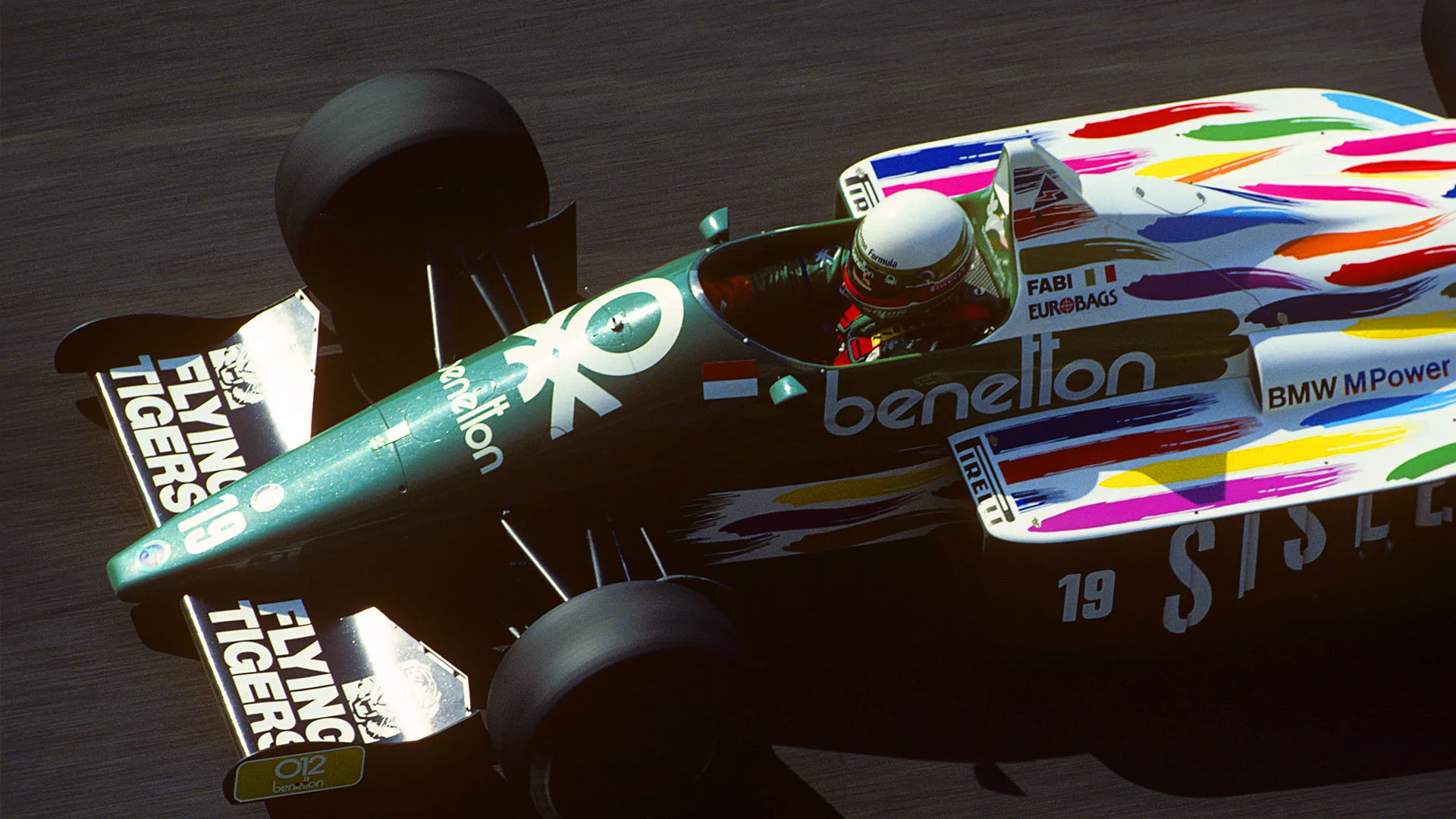
5. Jaguar R5
Jaguar’s foray into Formula 1 was largely unsuccessful, but it did give us some incredibly good looking cars adorned proudly in British Racing Green, with the R5 the last one of those to be fielded in F1 by Jaguar before the team was bought out by Red Bull.
The R5 was also involved in one of F1’s most infamous publicity stunts, with Jaguar encrusting the nose cones of Mark Webber and Christian Klien’s cars with a pair of $300,000 diamonds for the 2004 Monaco Grand Prix, in support of the movie Ocean's Twelve – only for Klien to crash headfirst into the Loews hairpin barriers on the first lap… and lose the diamond.
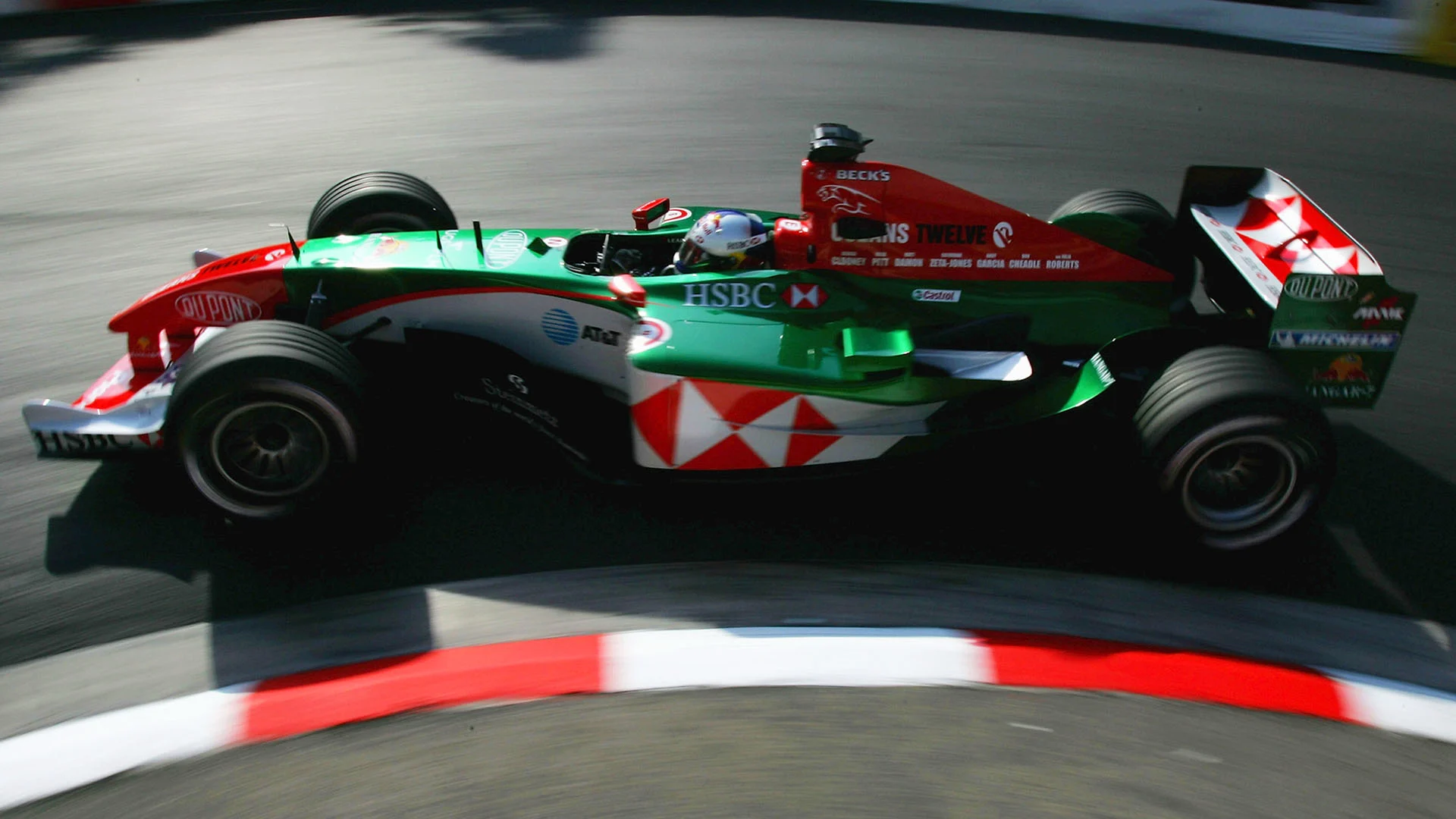
6. Caterham CT05
Of all the rudely-shaped cars to hit the track at the start of the 2014 season – and there were a few – the rudest, and the most verdant, was the Caterham CT05. Resplendent in its British Racing Green shade, that was one of the car’s few redeeming features, with the aesthetics dominated by a pronounced step on the nose that then trailed down to the proboscis-y protuberance that caused such mirth amongst schoolchildren.
Even with the solid line-up of Kamui Kobayashi and Marcus Ericsson – with cameo appearances from Will Stevens and sportscar ace Andre Lotterer – the car failed to score a single point that year, as Caterham struggled both for pace and cash throughout the season before bowing out of F1 altogether.
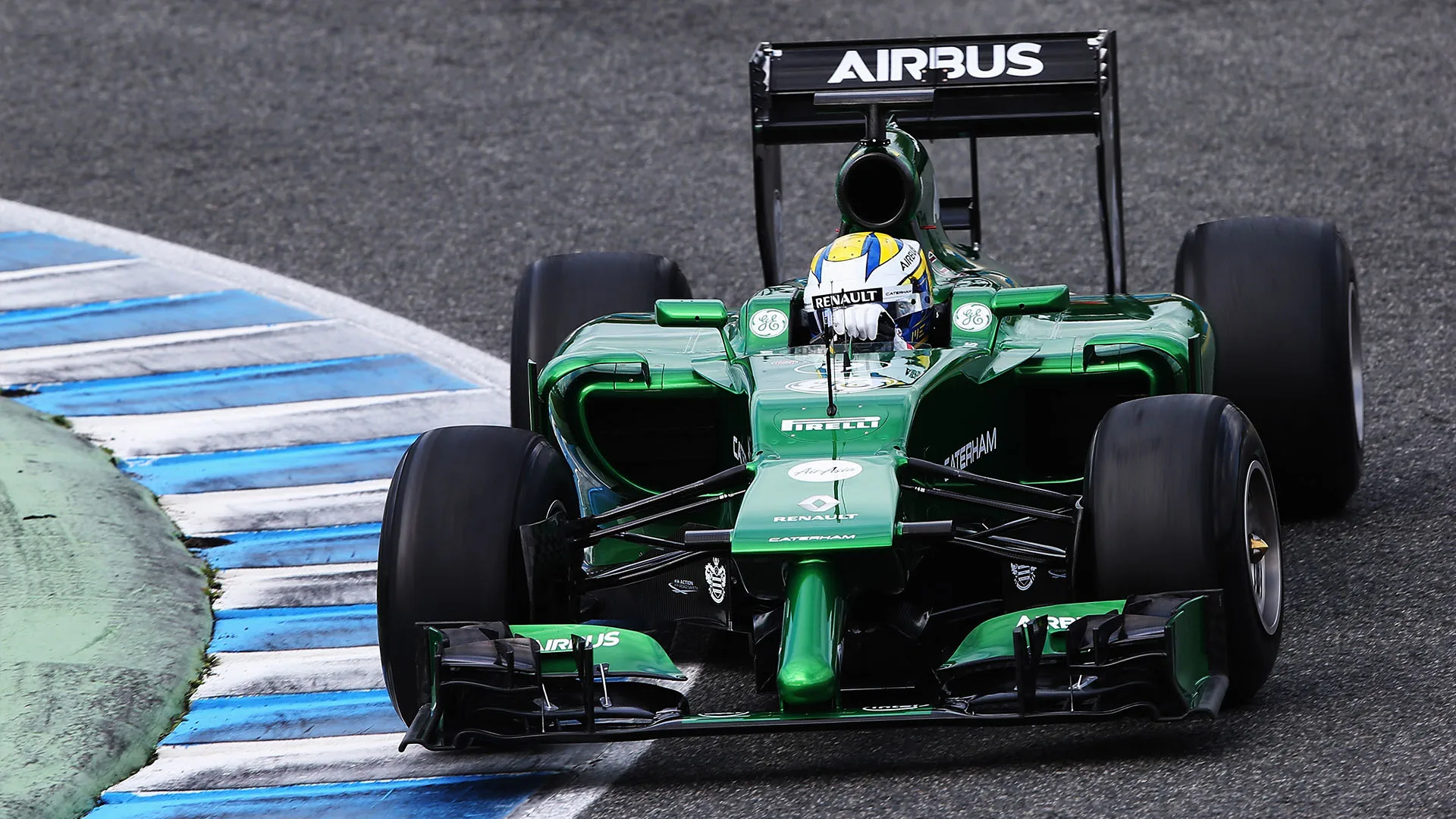
7. Lotus 25
For many, British Racing Green in F1 will always be associated with one team and one team only: Lotus. Before the advent of tobacco sponsorship spearheaded by the team in 1968 – which saw their cars adopt the red, white and gold colours of the Gold Leaf brand – Colin Chapman’s factory cars had always been proudly British Racing Green, with splashes of Norfolk mustard yellow.
Those colours on a Lotus 25 and in the hands of the great Jim Clark add up to perhaps the defining image of early-to-mid ‘60s F1, with Clark taking the car to both the 1963 and 1965 drivers’ titles.
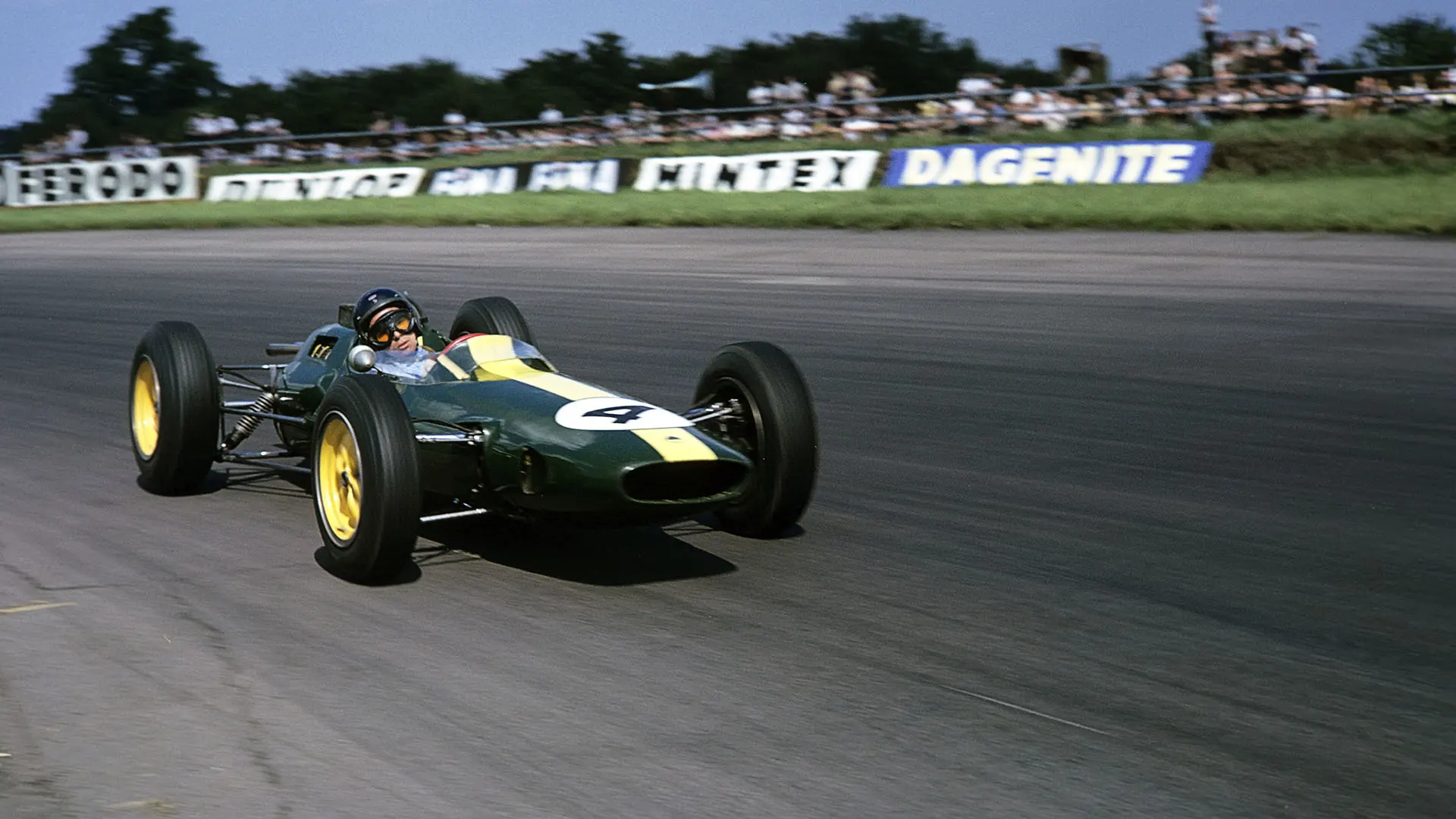
8. Lotus 80
With the Lotus 78 and 79 having swept all before them in 1978 – Mario Andretti using those cars to take that year’s drivers’ title, as Lotus claimed the constructors’ too – Lotus had high hopes for the follow up, the Lotus 80. Wearing British Racing Green festooned with Martini colours – a combination that, er, nearly worked – the 80 was, on paper at least, a technological masterpiece, effectively a car that was entire ground effect system.
READ MORE: The Lotus 79, F1's ground effect marvel
Unfortunately for Lotus, though, it was also an absolute bastard to drive. Carlos Reutemann flat refused to compete in it at all, so bad was its ‘porpoising’ as it erratically gained and lost downforce in corners, while Andretti struggled for four races in the 80 before the car was binned off completely.
This article was originally published in October 2020
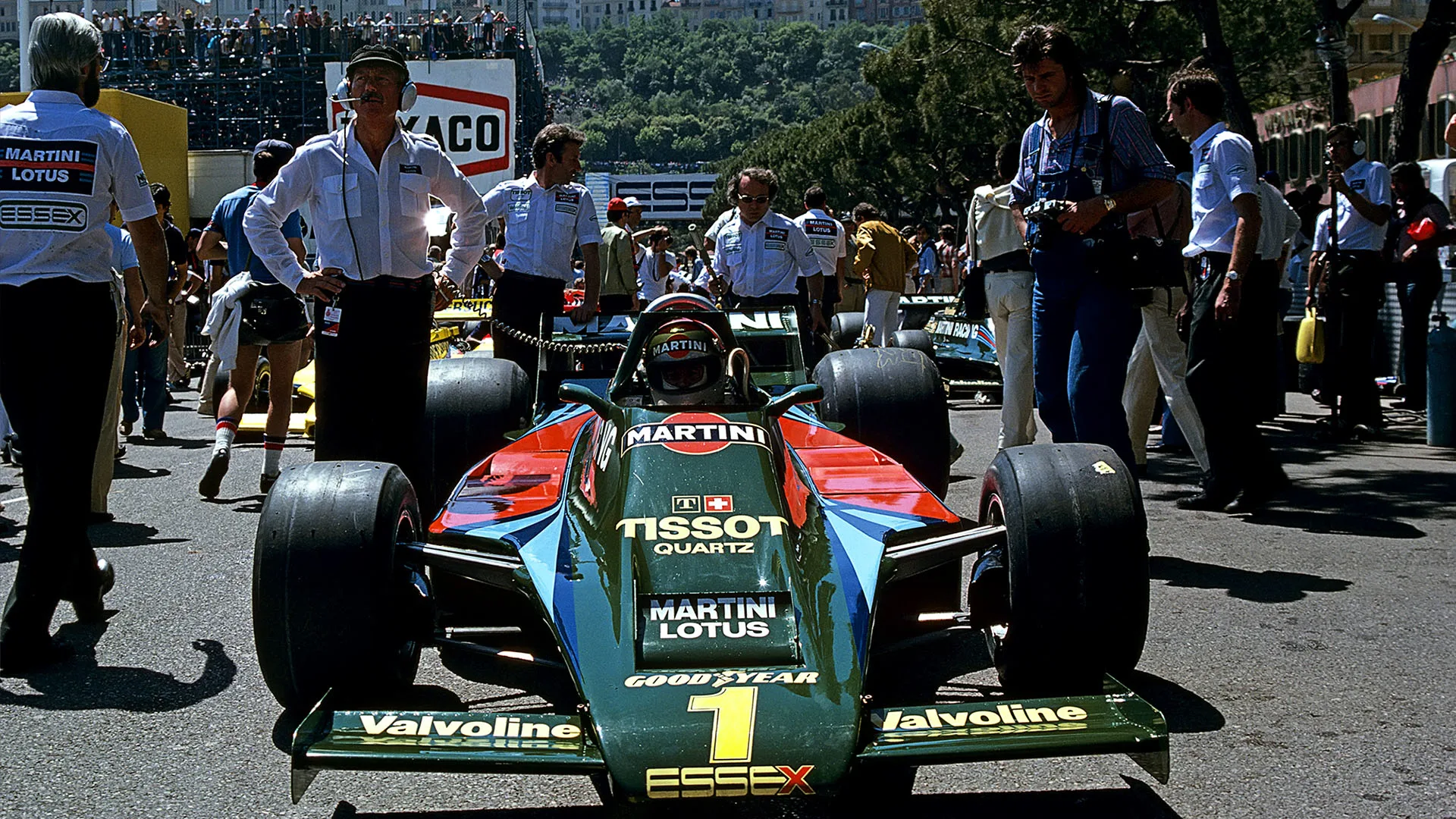
Next Up


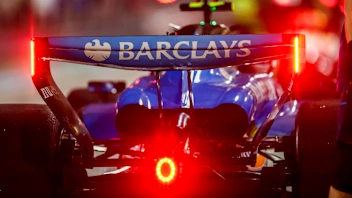
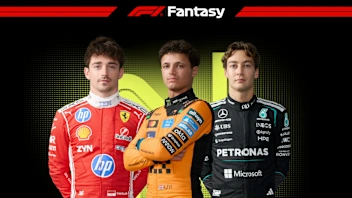
.webp)
.webp)
